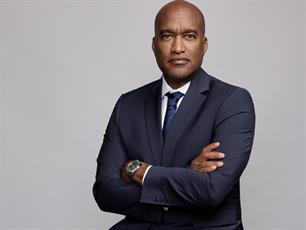Arun Sudhaman 12 May 2016 // 8:00AM GMT

LONDON — Ogilvy PR has called on businesses to play a more active role in support of the UK remaining in the EU, ahead of the referendum on 23 June.
A new study from the PR firm aims to provide concrete advice and guidance for corporates to deploy on the side of the Remain campaign. While 89% of British businesses (according to the CBI) support remaining in the EU, many have been wary of taking too public a stand, against a backdrop of rising populism and distrust of big business.
Ogilvy PR UK CEO Marshall Manson admits that business involvement in the Remain campaign could prove counterproductive in today's climate, but believes this is one situation where the benefits of a political stance outweigh the risks.
"When it comes to politics, businesses are often risk averse and stay above the fray," he says. "But the threat of Brexit is far too important for business to remain on the side lines."
Accordingly, his firm has analysed polling data and developed a number of recommendations that are what Manson describes as "practical, simple, low-risk, high-influence methods of beginning to get involved."
They begin with an analysis of voters, finding that the majority of undecided voters are women in the 35 to 44 age group. "These young (mostly) mothers are not interested in macro-economic gibberish about the billions of pounds being spent or saved by the EU," says Manson.
Also important are young people who, while most supportive of remaining in the EU, are the least likely to vote, and often cynical of big business. "Given their wariness of big business, any brand dialogue with this audience needs to provide such voters with an emotionally compelling, positive rationale for going to the polls," added Manson.
"If corporates want to have an influence on this debate, they must go beyond their comfort zone," said Manson. "Target outlets range from commercial radio networks to big regional newspapers; crucially, they also include outlets such as Grazia magazine, which over indexes among undecided social groups by over 216.2%, or This Morning, which reaches more than 5m every day."
As important as the audience, though, is the message. The study calls on business to avoid empty threats and business rhetoric in favour of local, emotive, messages. "We conclude that businesses should focus on a remain vote being the “safer” option for Britain," says Manson. "This could mean outlining concrete business plans in the event of a leave vote, like being specific about planned investments that will be under threat in the case of Brexit."
On our Echo Chamber podcast earlier this year, Ogilvy & Mather UK vice-chairman Rory Sutherland made a similar case for the Remain campaign, using the theory of "loss aversion" to explain why it should capitalise on the idea that people would be worse off if Britain left the EU.
The Ogilvy study takes this one step further by pointing to specific reasons to remain: including household savings, jobs and benefits to small business. Manson also calls on corporates to speak face-to-face with their employees, encourage them to get involved with retail politics and talk to local media.
"If business leaders are smart about how they get involved they can have tremendous impact," he added. "What I wouldn’t do is run around making headlines in the Mail. What you don’t want to do is make the situation worse by inflaming the debate."


































.jpg)

















